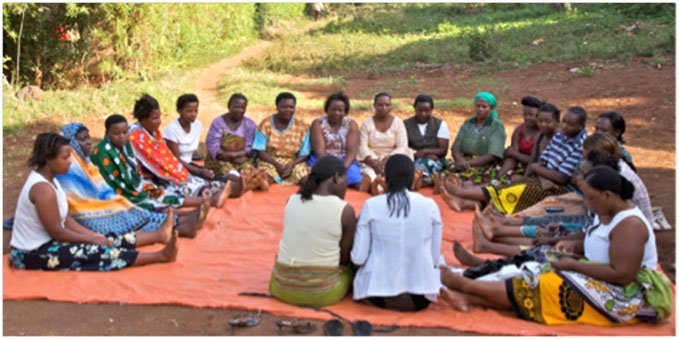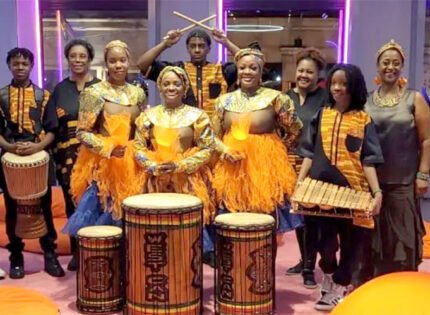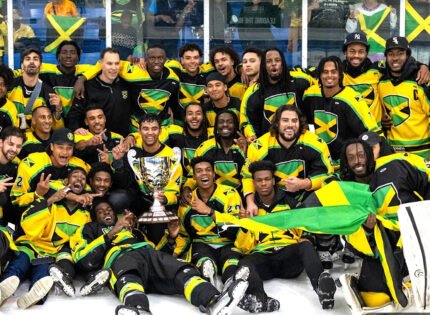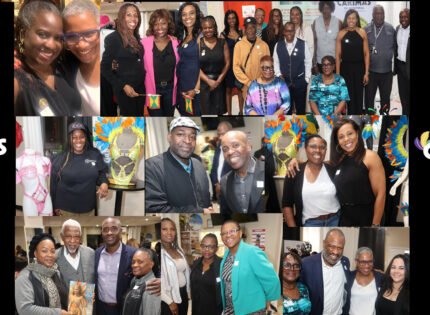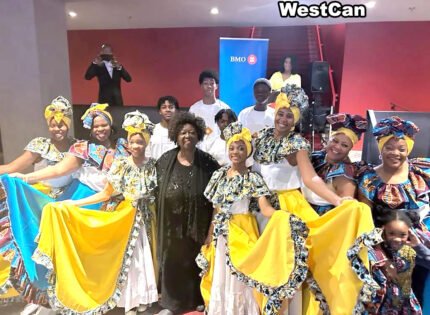Meeting-Turn, Box Hand, Partner, Tontines and Sol
By Dr. Caroline Shenaz Hossein
Black Can adians have contributed enormously to the social economy in Canada. And it seems fitting–in the U.N. Decade of the Year of Persons of African Descent 2015-2024–that we take stock of the important contributions of the African diaspora.
adians have contributed enormously to the social economy in Canada. And it seems fitting–in the U.N. Decade of the Year of Persons of African Descent 2015-2024–that we take stock of the important contributions of the African diaspora.
One of the most well known interventions is money pools organized by the women of color (also known as Banker Ladies). In my work I use the term “Banker Ladies”–the term coined by people in the Caribbean region–who organize money and people in a voluntary manner in an effort to meet their own social and economic needs.
The academic term for money pools is rotating savings and credit associations (ROSCAs). But ROSCAs are commonly known in the cultural vernacular by various names such as susu (Ghana, St. Vincent, Trinidad and Tobago, Grenada), esusu (Nigeria), meeting-turn (Barbados), box-hand (Guyana, Antigua), Partner (Jamaica), tontines (French Africans, Togo, Senegal and Benin) and sol (Haiti).
Defined as self-help and mutual aid groups in which people voluntarily come together to assist one another financially, money pools are characterized as peer-to-peer lending and have been getting traction in Europe, especially in Greece and the U.K., in response to the global financial crisis in 2007/08. One such contribution has been the work of the Banker Ladies, but one must “dig deep” to uncover this social economy.
Money pools, though many people engage in them, are embedded in the financial and social lives of many of the women I have interviewed over the years. Banker Ladies have been around since as far back as the 1500s when slaves were brought to Santo Domingo (today Haiti) and organized money groups. African-Americans also had economic cooperatives as early as the 1600s and had to because of the violence against them.
In 2016, Black people are still engaging in money pools. In Canada, for example, Somali-Canadians use hagbad, Ghanaian-Canadians use susus and Ethiopian-Canadians uqhub.
“How many chances do we get to be out and social? (Scoffs). Box give(s) me contact with people. It is about helping me and me helping other people. We all come together in a loving way. This is box.” (Rachel, not her real name, is a banker lady in the Cote des Neiges area with 70 members.)
Pooled banking systems are embedded in social relationships. As Rachel notes in the previous quote, box-hand, a money pool, is an important aspect of people’s social lives. Important findings revealed that the Banker Ladies in the Caribbean and parts of Africa have ties to, and members in, Miami, New York, Montreal and Toronto. No longer are these groups located in countries in the south; they are transnational.
Joseph Mensah in his book Black Canadians, points out that Canadians of African heritage make up one of the largest non-European ethnic groupings, and it is the fastest growing cultural group in the country with about 945,665 Black Canadians (Statistics Canada 2011). The biggest Black communities are located in Toronto and Montreal – sites for my research on the Banker Ladies.
In 2015 and 2016, I conducted a total of 136 interviews on Banker Ladies in two of Canada’s major cities, Toronto and Montreal. I conducted 94 interviews in Toronto’s Jane/Finch community and Warden Woods’ community in Scarborough, of which 46 were Banker Ladies. Also, 42 interviews were done in Montreal’s Little Burgundy, Jean-Talon and Cote-des-Neiges communities. The people I met confirmed that money pools are alive and well and continue an ancient African tradition. Banker Ladies engage in money pools to meet personal and community economic needs.
“It is important for our people to build something for (them) selves. (And) not to be controlled by the government…to create our own rules and our own circle of power. It is our resistance. Yes…it is…Susu helps us (to) thrive as a people and to have a social commitment to one another. Susu is not about you or me, it is about the group. It is the joy. We need to see some (joy) for our own survival,” says Susan, a single mother who was part of a focus group in Little Burgundy. (We met on 18 June, 2016.) The social economy has been theorized by Black liberation thinkers, yet these ideas have not infiltrated into the field…
The Underground Railroad and the work done by Harriet Tubman are examples of cooperative action, just like the money pools. As stated in Susan’s earlier quote: “Money pools and the coming together can bring joy as well as resist an oppressive power. Tubman assisted hundreds of enslaved people escape from the U.S. into Canada through an intricate informal social economy, where people collected goods, money and transport for the safe passage of Black people into Canada.
As early as 1903, an African American and Harvard-educated W.E.B Du Bois, of Haitian heritage, advanced the theory of group economics among African Americans. Du Bois’ powerful piece The Souls of Black Folks (2007, first printed in 1903) describes communal forms of business among Bantu tribes in southern Africa, and this historical grounding has inspired the Black diaspora.
The concept of “group economics” is a fundamental aspect of Black liberation theory. Jamaican Pan-Africanist Marcus Garvey toured Toronto and Halifax to uplift the lives of Black Canadians. His own upbringing in colonial Jamaica and witnessing his mother ‘throw Partner’ no doubt influenced his own ideas about “self-help.” Blacks around the world are influenced by Garveyism, and so too are the Banker Ladies about business ethics.
In Africa and the Caribbean, money pools are a time-honored tradition and many Canadians are also upholding these cooperative groups either because they want to or because they need to. Money pools are loved because of what they have done for people in hard times, like assisting newcomers in adjusting to a new life.
My research shows that money pools are a cherished African tradition, and that these self-help groups push against racial bias and class exclusion. It is in this act of resistance that somehow a negative perception around money pools has developed and paint money pools as illicit or illegal activity, and typecast them as “gambling,” “money laundering” or “pyramid schemes” (this happens in Canada but it is not the case elsewhere).
So the Canadian Banker Ladies take their work underground and away from the public domain. Banker Ladies continue this practice as a way to rightly argue that money pools are a trusted institution that came to the Americas centuries ago from Africa, and for the past sixty years have been deeply embedded into our Canadian lives.
Dr. Caroline Shenaz Hossein is an Assistant Professor at York University
chossein@yorku.ca


